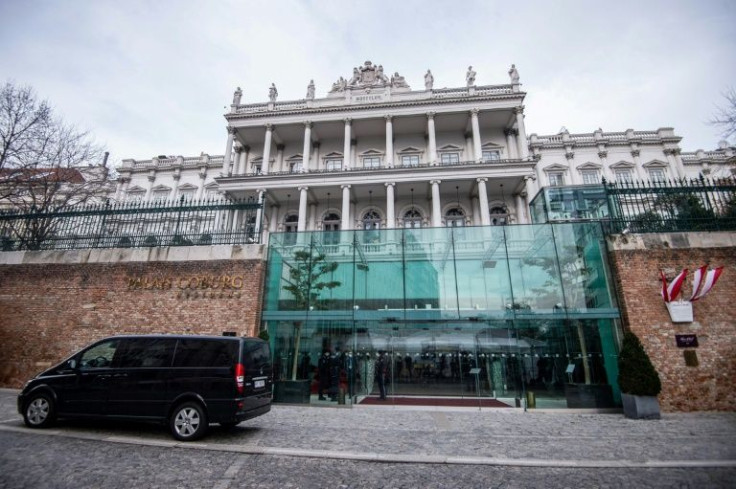US Warns It Will Not Let Iran 'Slow Walk' Nuclear Talks
The United States warned Saturday it would not allow Iran to "slow walk" international negotiations over its nuclear program while at the same time ramping up its atomic activities -- but stopped short of slamming the door on talks.
The warning came a day after Washington hit out at Iran, saying talks with world powers had stalled because Tehran "does not seem to be serious."
"Iran did not show the posture of a country that is seriously thinking of a rapid return" to the 2015 accord aimed at putting curbs on its nuclear program, said a senior US administration official, speaking after returning from the Austrian capital where talks resumed last week.
"We can't accept a situation in which Iran accelerates its nuclear program and slow walks its nuclear diplomacy," said the official -- echoing a recent warning by Secretary of State Antony Blinken, and also reflecting concerns voiced by some of the Europeans taking part in the talks.
The seventh round of nuclear talks ended Friday after five days in Vienna, with delegations returning to their national capitals and expected to go back to Austria next week.
Iran had paused the talks in June following the election of ultraconservative President Ebrahim Raisi.
The official argued that the United States had shown patience in allowing a five-month break in the process, but that during that time the Iranians were "continuing to accelerate their nuclear program in particularly provocative ways."
When Tehran finally returned to the table on Monday, he said, it was "with proposals that walked back any of the compromises that Iran had floated during the six rounds of talks."
He accused Iran of seeking to "pocket all of the compromises that others -- the US in particular -- had made and then ask for more."

The official said Washington had not decided to pull the plug on indirect talks with Tehran, but hoped that Iran would "come back with a serious attitude" when the European Union coordinator reconvenes the parties, likely at some point in the coming week.
At this stage, he said the United States will pursue its efforts at diplomacy -- but reasserted it has "other tools" at its disposal should negotiations fail.
The sharp tone seemed to leave the US as close as it has been to throwing in the towel on the talks and turning to those "other tools" -- understood to potentially include military force, a prospect that would spell new turbulence for the Middle East.
The landmark 2015 nuclear accord -- initially agreed between Britain, China, France, Germany Iran, Russia and the United States -- began unraveling in 2018 when then president Donald Trump pulled out and reimposed sanctions, prompting Iran to start exceeding limits on its nuclear program the following year.
President Joe Biden has said he wants to re-enter the deal, and the United States has been participating in this week's talks indirectly toward that end.
But the initial expressions of optimism from the Biden administration have gradually given way to a deepening sense of pessimism.
The United States is certainly "preparing for a world in which there is no chance" for the nuclear deal, the American official stressed.
He added, nonetheless, that if the Iranian side does return to the table ready to deal, "they will find a very serious partner on the other side, which is the United States."
Iran has always insisted that its nuclear program is peaceful.
© Copyright AFP 2024. All rights reserved.





















